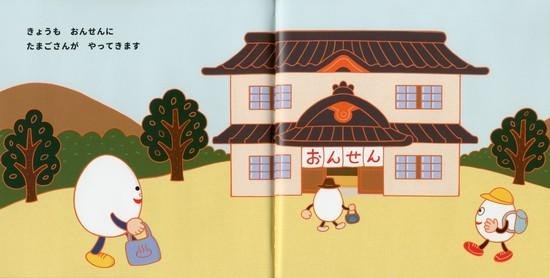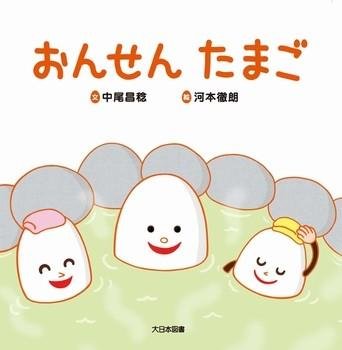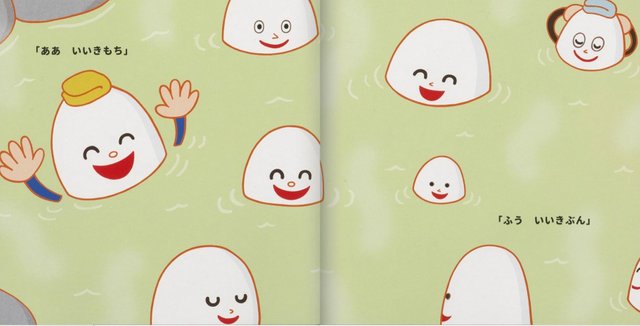(For free)
Seems pretty obvious right? If you read books in a language, chances are you'll get better at it.

image placed for cover
That's how I learned a lot of my vocabulary in English. I used to read a lot of fiction when I was younger, and I had a tendency to read books that were challenging to my linguistic skills.
It only makes sense that you'd do so when learning a foreign language as well... that being said, it requires a certain level of proficiency. You can't just start reading books and expect to pick up language skills -- you have to be able to understand something of what you are reading.
At a bare minimum, you have to be able to understand the alphabet. If you didn't know your ABC's and how the letters worked together to make sounds, you'd have a hard time reading anything.
But aside from that, in my opinion, there is no reason why you couldn't start reading immediately.
Now I'm going to diverge into specifically reading to learn Japanese.
So we've established you would need to be able to read the alphabet -- ie. Hiragana and Katakana. Luckily, they're pretty easy to learn and should take you no longer than a couple of weeks with even relatively casual study. and with a couple of minor exceptions, they are extremely consistent pronunciation wise. So there's no weird interactions between them (like there are in english).
In fact, one of the exceptions is actually often subverted in beginner level Japanese books.
Which is where I'm going with this. Obviously, if you do not know the bare minimum couple of thousand Kanji required to have basic proficiency, reading anything with Kanji is going to be a wash. You're going to get little to no value from that and it is going to be painfully slow and difficult.
But a book designed to be read by (with) a 1-2 year old... you can probably handle that even as a beginner.
The stories are going to be very short and few on words, and there's going to probably be a lot of pictures to help you figure out what this or that word means.
I mean, it's certainly not a replacement for dedicated study of the language, but even though the stories are probably not very interesting to you... it's a hell of a lot more fun and engaging than reading grammar rules -- and you get to see Japanese as it's being used.
Also, when you're learning Japanese, they tend to teach you based on the levels of the JLPT. Which is the basis for measuring your proficiency in the language in general if you are trying to demonstrate that for something such as attending college or getting a job... However, even the lower levels of the JLPT has a surprising amount of formal language / business language that you wouldn't need to know as a small child or a beginner trying to communicate with people.
If you're not going to college in Japan, why in the world would you need to be able to talk about what major someone is taking at their university? Yet that is half of the dialogue in chapter 1 of Genki (one of the better books for studying basic Japanese).
CHAPTER FREAKIN 1!
Anyways, getting back to the point. You can supplement your studies of the language with something a bit more practical and fun.
Okay, so we've established the premise of what to do here... but how do you actually get material to read; especially material that is the right level?
Well, here's where a little site/bookstore called EhonNavi comes in. They have a selection of books that are viewable online -- 100% free... and you access the entire book. The caveat to that being that you can only access the book once per account and only for a limited period of time.
You can sign up for free, but the site is entirely in Japanese. Of course, if you have ever signed up for anything online -- it really shouldn't be that difficult for you. Just use google translate -- and/or the handly little guide someone uploaded to Imgur that I will link later.
The guide shows you exactly where to click to read whole books, and how to sort them based on age group once you're there.
Today, for the sake of this guide, I opened up the page for <1yr (0歳) and picked out a book about some Eggies going to the Onsen (Public baths/spa)

100% of the dialogue in the book is written in Hiragana (sound effects in Katakana), and there is pretty much one phrase per page of very simple language.
It's a cute short little book where all the eggies go into the onsen and they're having a great time -- when suddenly... one by one... they begin to crack and open -- hatching into different animal!
but the last one hatches... and nothing comes out! -- they all peek in to see that indeed -- There's just a personified egg yolk inside of there smiling away!
All of the language in that book was very simple... ie. "aah this (water) feels nice", or "mr. egg goes to the onsen as usual today", or "there are big eggs here, small eggs, tall eggs, short eggs -- all kinds of eggs"

Pretty easy to understand stuff even with a very basic knowledge of the language -- but if you are a beginner you might not know what a ひよこ (an example from the book) is -- and this is an easy and engaging way to pick up some extra low level vocabulary.
It's generally recommended to put any words you do (did) not know into your flash cards (which I have recommended in the past) as well. That way you can pick them up in context and continue to study to remember them even after you've finished reading the book.
Anyways, I think this is a pretty easy -- risk free way of supplementing your studies with some practical language (and cultural insights). I think that it'd be silly to be able to have a full conversation with someone about how they're going to college to become a lawyer but then be completely unable to talk about something as simple as which animals you like.
There are 82 free books listed for this age range on there at this moment, and thousands total up on that website for free.
Here are the links I mentioned earlier:
EhonNavi
Guide to register (Imgur)
Tofugu Hiragana
Tofugu Katakana
Onsen Tamago -- EhonNavi (image source)
Thanks for coming by!
You're the best around. No one's ever gonna keep ya down!
- Guurg
P.S. Good luck in your quest to learn 😃
Thanks so much for this - I'm struggling with this myself now - am on Genki II, have been studying Japanese for six months, and since I'm focusing more on conversational Japanese than Kanji, struggling with finding stuff to read (tried anime but got VERY quickly lost). This is すごい !
Downvoting a post can decrease pending rewards and make it less visible. Common reasons:
Submit
Glad to help 😃 Watching Anime for comprehension is a bit rough.
Downvoting a post can decrease pending rewards and make it less visible. Common reasons:
Submit
Wonderfulすばらしい(Subarashii)!
Downvoting a post can decrease pending rewards and make it less visible. Common reasons:
Submit
@tipu curate
Downvoting a post can decrease pending rewards and make it less visible. Common reasons:
Submit
Upvoted 👌
Downvoting a post can decrease pending rewards and make it less visible. Common reasons:
Submit